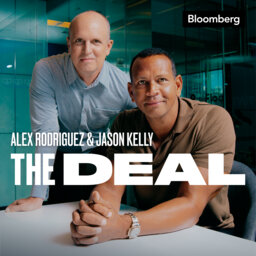How Yankees Assistant GM Jean Afterman Changed Baseball for Japanese Players
In this episode of The Deal, Alex Rodriguez and Jason Kelly talk with the New York Yankees’ Assistant General Manager, Jean Afterman. Afterman explains how she helped change the game by helping to introduce Japanese players to the MLB, what she learned from legendary Yankees owner, George Steinbrenner, and the advice her mother gave her to start off every negotiation on the strongest foot.
 The Deal with Alex Rodriguez and Jason Kelly
The Deal with Alex Rodriguez and Jason Kelly


